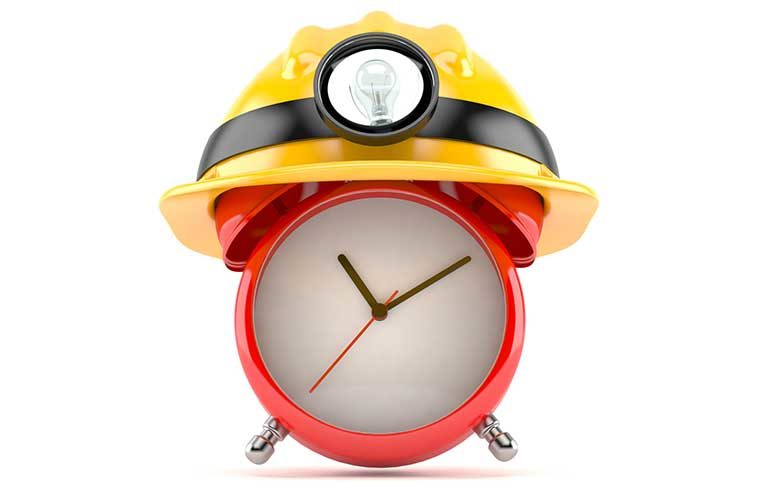Perth, Australia — It’s “imperative” that employers attempt to enhance work shift scheduling so employees can get sufficient sleep, researchers from Edith Cowan College say after their latest study of mine employees in Australia.
The researchers monitored the sleep habits of 75 “fly-in, fly-out” mine employees, who didn’t stay close to the mine and have been transported to and from the jobsite. Contributors wore exercise monitoring gadgets for 3 weeks throughout a “two and one” work rotation – a schedule of seven day shifts adopted by seven evening shifts after which a return house for every week off.
The individuals have been requested about their sleep and life-style behaviors. Findings present that shifts that began at 6 a.m. required a wake-up time of 4 a.m. and induced a “significant” sleep loss. Sleep period was half-hour shorter earlier than day shifts and 77 minutes shorter after every evening shift, leading to an “accumulated sleep debt” earlier than the miners’ off week.
The miners usually labored shifts of 12-plus hours, along with time spent touring, consuming, exercising or enjoyable. Additionally, 3 out of 5 of the miners have been thought of “at risk” of growing obstructive sleep apnea, shift work sleep disorder or one other sleep dysfunction.
“When all these activities were combined, it leaves little opportunity to get eight hours of sleep,” study supervisor Ian Dunican stated in a press launch. “The reality is many workers are getting less than seven hours of sleep per night.”
The researchers level out that the findings could apply to shift employees in industries similar to health care, manufacturing, logistics and journey. Together with ensuring employees have an opportunity to get sufficient relaxation, employers may help by adjusting shift begin instances and educating employees on good sleep health practices. As well as, employers ought to help screening employees for sleep issues and assist those that want remedy get it.
The study was published online Oct. 23 in Utilized Ergonomics.



